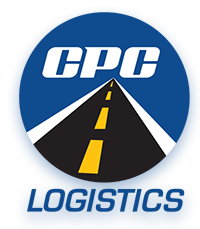

Highway to Health: 10 Tips to Control Health Care Costs
Health care costs continue to rise, but there are manageable things you can do to reduce how much you spend.

- Get online. Try to find out everything you can to make informed, cost-saving health care choices. Umr.com offers online tools to help you review your health care options, pharmacy benefits and health coverage estimates.
- See preferred in-network providers. Most health plans let you see any provider you want. But you can save money by seeing those who are part of your plan’s preferred network. Going to a preferred, in-network provider usually saves you at least 20 to 30 percent more.
- Choose the right care. A trip to the emergency room may be needed if you are seriously injured or ill. But consider a cheaper option, like a walk-in clinic or urgent care, if you have a minor illness or issue like an ear infection. It may save you time as well as money.
- Think long-term. Some people go to the doctor for minor reasons once they meet their yearly deductible. While that may not have an instant impact on your health care costs, it’s a major factor in driving up everyone’s overall cost of care.
- Go generic. Generic drugs are the same as other medications, just without the brand name. The biggest difference is the price. Generics usually cost you 30 to 70 percent less than brand names.
- Review your EOB. Billing mistakes sometimes happen. Review your explanation of benefits (EOB) statement to make sure you’re properly billed. Contact your provider if you suspect an incorrect charge.
- Take care of yourself. The harmful effects of unhealthy habits, such as tobacco use and alcohol abuse, can lead to health issues like cancer and heart disease. If you use tobacco products, seek help to try quitting. Practice moderation if you drink alcohol. Get help if stress or depression is an issue.
- Practice prevention. Preventative care includes things like physical exams, vaccines, blood tests and cancer screenings. These services can help keep you from getting sick or detect a health issue before it gets serious. Check your health plan to see if preventative care is covered in full or at discounted rates.
- Eat right. A balanced diet can save you money. It keeps you healthier in the short term and lessens your chances of developing more serious and costly medical conditions in the future.
- Exercise. Just 30 minutes of walking or regular exercise each day impacts your weight, stress level and possibly your wallet. Exercise helps control and prevent high blood pressure and cholesterol – two of the major risk factors for heart disease.
Take Our Fun Driver Survey!Driver’s Lifelong Model Building HobbyStephen Dixon Earns One Million Mile AwardDriver Adonis Cruz Perseveres Through SnowstormCPC Employees Win Medal in Basketball TournamentEnrique Parga Receives 15 Year Safe Driver AwardSafety Tip of the Month: Sunglasses for Road SafetyHighway to Health: 10 Tips to Control Health Care CostsNew Driver Training Class for Orlando DriversDrivers of the Month-March 2023Kent Alexander RetiresSafety Meetings
Click here to view past issues of Tandem Talk